Margin Matchmaker
Don’t use AI to automate your prose, use it to automate your research.

My book collection grows faster than I read. Still, I never leave a bookstore empty handed. I continue to grow a comically unreadable collection, containing volumes on Greek Orthodox saints, whole shelves on psychedelic research from the 70s, and a growing collection of ‘simulation fiction’ from the 1990s.
I’ve corralled more than I can read in three lifetimes, and I’ve barely made a dent.1
My library haunts me. I stare at the mosaic of colored book spines and imagine the wisdom I’d wield if I got my act together. It’s the ultimate expression of my taste, and I’ll never have the bandwidth to experience it. I’m inspired by its potential, but disappointed by its weight. This is the tragedy of the “closet scholar.”2
This doesn’t even include my digital library, a wasteland far worse. The volume of ‘interesting’ information I save online is radically ballooning. My Readwise Reader app is bursting with 320+ articles3, my Kindle count is creeping upwards, my email inbox is stacking newsletters from Internet friends, and Twitter.. Twitter is a relentless torrent of wisdom, banter, gossip, and rage.
It’s impossible to keep up, so I settle with curating less, reading less, and highlighting less.
Reader’s guilt is real.
Scenes from the Matrix come to mind. If I could somehow upload my library directly into my hippocampus through a magic needle, I’d infuse a superhuman degree of perspective into my writing.4
Could AI let me unlock the knowledge inside my personal library?
Book people, relax. I’m not looking to replace reading-for-pleasure with cheap AI-generated summaries. They’re hollow and void of joy. I don’t want the Spark Notes. I want the obscure excerpts hidden in Chapter 13, written in elegant prose, and eerily related to my exact stream of thought. They’re just impossible to find at the right moment. Can algorithms find these gems, and then relay the coordinate back to me as I’m writing?
I’d easily pay $9.99 a month for an army of robots to binge-read my entire library at 3,000x speed so they can map my curiosities and recommend excerpts to me as I craft sentences in real-time.
Turns out, this kind of exists already, through an app called re:collect (you should request access). I played around with it in 2022, and it gave me a glimpse into where ‘second brain’5 apps are heading.
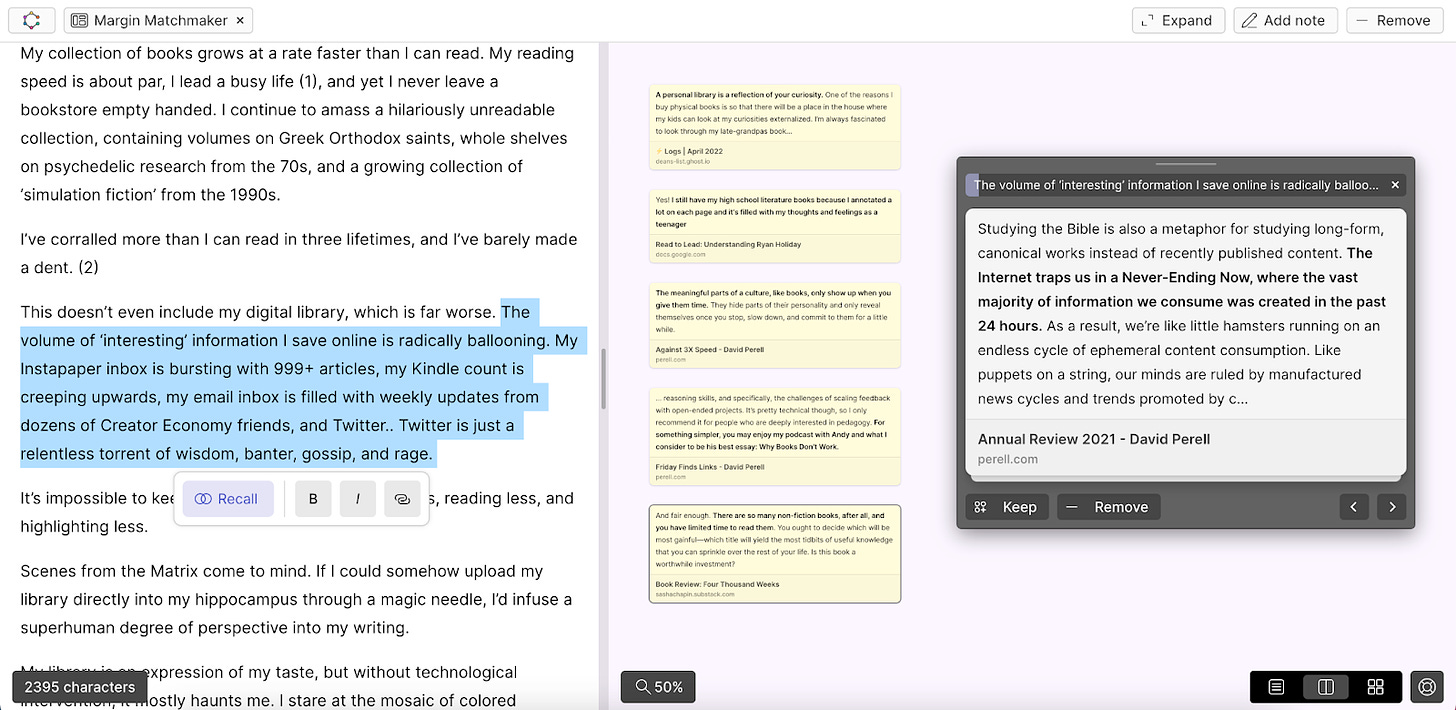
re:collect describes itself as:
“An AI-powered thought partner that uses machine learning models to effortlessly connect you to your digital information, preventing the need to tag, organize, or link ideas.”
This! This is the key bottleneck that writers face. It requires peak diligence to organize and access our inspiration.6 Note-taking, if you're not careful, can spiral into a tyrannical chore. re:collect helps you discover the gold in your (unread) libraries, with no effort, at the exact moment you need it.
Imagine writing a sentence, and then suddenly a relevant passage pops up in your margins. It’s from an unread book on your shelf. Telepathy. It shows that AI doesn’t have to be a prose automator, it can be an intellectual matchmaker. It lives in your margins, and it connects your ideas with the pantheon of intriguing authors who you never have the time to read.
This tool is a beautiful example of AI helping writers (instead of replacing them). I don’t want to use a chatbot to write my sentences for me, but I sure would use AI to unfuck my second brain.7
For writers, the killer use case of AI isn’t in content creation, but in content curation.
What could our workflow look like once AI research assistants reach full-maturity? This essay is a high-resolution daydream that answers this question. I’ll break it down into three parts:
Define the boundaries of your taste
Discover relevant excerpts as you write essays
Receive custom reading lists based on your writing output
1. Robot binge-readers
Define the boundaries of your taste
Imagine: you sign up for a new writing companion app. Right out of the gate, it asks you:
What would your reading list look like if you could live for 10,000 years?
This question is a radical shift in how we think about information harvesting.
We currently think in peanuts. We’ll clip a quote here and highlight a paragraph there, like picking berries into a basket. This is a sensible strategy for a creature who perceives reality through a single cone. Think bigger.
Reading is no longer the bottleneck to your research. You now have infinite bandwidth thanks to your army of robots. You’re only limited by your taste. What is worth uploading into your personal library?
(To start, I’d upload the books in my analog library, my Readwise account, the full websites of Tyler Cowen and Maria Popova, the full works of Carl Jung, Terence McKenna, and Fernando Pessoa, an encyclopedia of 1990s pop culture, all Beat Generation writing, textbooks on architecture history and Greek Mythology, all Cultural Tutor threads, the past and future essays of everyone I subscribe to on Substack, and my whole browsing history.)
Your role in research will shift from the grunt scout to the master director. All you have to do is aim at the sources, and the machines will auto-index them into your personal library. The sources you pick are important. They’re a proxy for your curiosity, and they determine the nature of your recommendations. It results in your own ‘mini-Google’; a personal universe of material that is pre-filtered by your taste.8
Once you’ve shaped your list, you’ll click a button, and it’ll start binge-reading at unimaginable speeds.
Before you can take a shit and come back, this app has already devoured the entire western canon and it’s hungry for more. A hundred lifetimes of synthetic wisdom is prepared in the time it takes for you to release a single bowel movement.9
Just because the machines have read all this stuff doesn’t mean you’ve absorbed it. But, it knows where everything is. It has read every sentence, indexed it, and is ready to report them back to you at a moment's notice. It has taken the darkness of knowledge, the outer boundaries of your curiosities, and converted that whole thing into potential energy. As soon you show up to write, the right knowledge, at the right time, will burst into your margins.
2. Margin Matchmaker
Discover relevant excerpts as you write essays
I’m working on an essay about an Ancient Greek mystery school, so I sent it to my friend
for feedback. This dude happens to be a human encyclopedia. When I jumped back into the GDoc, I found the margins bursting with novel research that I would have never come across.Imagine if I had access to this realm of knowledge as I wrote in real-time?
Think about it – your binge-reading robots have indexed everything you might ever want to know. They are information trillionaires10, and they’re parked in your margins. For every sentence you write, they’ll scan their maps and check for matches. As you write your own stories and ideas in prose, you’ll see bubbles pop up in the margins, including sources, quotes, events, facts, myths, and people.
Critical point here: AI isn’t doing the writing, you are. AI is serving you an endless stream of intellectual alley-oops.11
Writers don’t want randomly-generated, possibly-fake text from a babbling machine. We want split-second automatic references. Give me an epiphanic something from page 182 in a book you never heard of from your college roommate’s favorite author.
Reject. Reject. Accept. Reject. Oh damn. Drag that one into your essay.
This fundamentally changes how search works. Research has always been a flow-breaker for me. Whether you're using Google or your own private Evernote, it’s a state change. You switch from expression to reconnaissance-mode. You have to write a search prompt that hopefully summons the right links. Then, you tab dive down Wikipedia rabbit holes until you lose 30 minutes of your life.
With AI, search changes from pull to push. You won’t have to write short prompts in a slim bar anymore. Your draft itself is the new search query. The results are automatic, telepathic, and instant.
There’s something uncanny and magical in this process. You’re being matched with your heroes from the past. Their ideas are connecting to ours, so we can expand on them through our writing. AI might free us from the ‘Never-Ending Now,’ and propel us into ‘the Great Conversation.’12 It could spawn a Renaissance, where the barriers to resurrect forgotten knowledge will be diminished.
The more you write, the more refined your AI gets. Your written words get checked against the galaxy of information your binge-readers have gathered. It starts to build a model of your taste, and shows you what’s worth reading with your limited, precious time.
3. The Telepathic Syllabus
Receive custom reading lists based on your writing output
In ‘How To Read a Book,’ Paul N. Edwards. says, “unless you’re stuck in prison with nothing else to do, NEVER read a non-fiction book from beginning to end.” This quote might shock or upset the Book People. I also love the act of locking into a work for hours at a time. It’s just a terribly inefficient way for most people to research.
AI won’t replace the act of reading, it will guide your reading. It will understand your taste, history, and goals, so that it can create custom reading paths for you.
Similar to how radio disconnects the song from the album, AI will dislodge ideas from books. Those who cry about the death of the album13 might cry about this too. But there’s a power to non-linear consumption. In his post, ‘Skillful reading is generally non-linear,’ Andy Matuschak says, “when you’re reading for information, you should ALWAYS jump ahead, skip around, and use every available strategy to discover.”
The act of disconnecting and reconnecting gets supercharged with taste algorithms. Think about Discover Weekly on Spotify. The more you listen, the more accurately it models your taste. Since 2014, I’ve discovered Ethiopian jazz, Afrobeat, Beatles rip off bands in South America, old bouzouki songs from Greek islands, Sun Ra space jazz, and the Grateful Dead, among thousands of others bands who I love, but whose names I can’t remember.
The ‘hit rate’ of enjoyment on Spotify is extremely high. Almost all the time I spend listening is filled with music I like, regardless if I’ve heard it before, know the artist, or know the decade it was recorded in. I can’t say the same for reading. I’m currently working through “The Origins and History of Consciousness,” by Erich Neumann. There are pages (and chapters) of slog. But in sparse moments, I’ll find something profound that reorients my whole compass.
AI will emerge as the ultimate matchmaker of ideas. It will sift through oceans of words and deliver you “just-in-time epiphanies;” the best ideas, exactly when you need them.
You can already find non-linear reading in a college syllabus, but it’s not customized. These paths were designed by teachers, sometimes passed down for decades, and never calibrated to your specific obsessions. At whatever interval you request, you’ll get a telepathic syllabus from AI — curated as if it’s reading your mind.
These reading paths might include tweets, excerpts, articles, chapters, and even whole books. They’ll range from modern times to ancient times. And most importantly, it’s all weighted by the ideas you’re already collecting, highlighting, and writing14. This could be a media feed done right. Instead of an algorithmic pit designed to get you addicted to sex and rage so you buy ebooks from hucksters, this will be a feed that is the ultimate mirror of your curiosity.
What does this mean for writers?
No more analysis paralysis. No more book chugging.
Knowing this technology is en route, I no longer look at my personal library with a sense of guilt. I don’t feel the need to devise some Herculean method involving Zapier, text-recognition scanners, and Obsidian to squeeze the juice out of my book collection.
As everyone now senses, AI is about to radically change the systems of the ‘analog writer.’
Should we fear this?15
AI won’t ‘replace’ writers in the aggregate. Like all new technologies, it will create a gap between those who harness the technology and those who don’t.16
ChatGPT poses an existential risk to ‘mercenary writing,’ the kind that’s written fast, without soul, for utilitarian reasons.17 We might see an explosion in the volume of ‘meh’ content, creating a situation for great content to rise above it. Basically, you can’t just get away with good distribution anymore — quality matters more than ever.
The writers who fuse with the technology can undergo a radical ascension in their craft. I’m not saying writers need to upload the western cannon into their skull through a Neuralink, but on the page it might appear as if they have. The writers coming out of this movement won’t just be good, they’ll be history-definingly-good.
We’ll see a radical feedback loop between the writer, their taste, and the full spectrum of knowledge across history. The more you write, the better recommendations you get. The more you read, the better your real-time sources get.18 Your command over information will be a type of sorcery.
Prepare to harvest the infinite. With everything at your fingertips, your only bottleneck is the nature of your imagination. With the winds of history behind you, you’ll live life and tell stories, guided by surprise, humor, and emotion, rendering your experience in your voice.
We’re entering a revolution in research, curation, and recommendations. If you’re a writer, get ready and pay attention. We’re about to hit escape velocity.
Let’s riff:
What are the bottlenecks in your reading and capture systems?
Would you use AI to automate your research? What are the benefits and drawbacks?
Are you an optimist or pessimist around AI for writing? How are you experimenting with it?
And don’t forget, you can request access to the re:collect beta here. Follow them on Twitter for updates. Also, they’re hiring! If you’re a Backend or Data Engineer, check out their current openings. Feels like an amazing time to work on something like this.
—
Special thanks:
Thank you to
, , , , Lisa VanDyke Brown, , Tai Whyte, , Chris Wong, and for feedback on this essay. It takes a village.Footnotes:
In Japanese, the phrase “tsundoku” refers to the act of hoarding reading materials. (🙏 Chris). Even though we know hoarding is bad, we tolerate book-hoarding since the pursuit of knowledge is noble. Worst case, we color-code our unread library and transform it into an interior design flex. Best case, we’re more likely to read when books are visible.
A “closet scholar” is a studious person in a non-academic setting. Since they’re not immersed in a culture of obsessive reading and writing, their true nature is concealed. They have the impulse to dive in, but not the lifestyle. In “The American Scholar,” Emerson writes about the scholar’s duty to unearth the past, think independently, and charter the future. To an outsider, a personal library looks like an impressive feat, but to a scholar, their unread library is a symbol of their failure; a fumbling of their religious responsibility.
I did the math. In 7.5 months, I saved 672 articles into my “read it later” app. This comes out to 2.95 articles per day (107 hours total), or 25 minutes of reading Internet essays per day. Seems reasonable. I share this to show that I’m not over-hoarding. But of everything I saved, 50.4% of it is still in the “to read” pile. It would take 54 hours ‘to catch up’ (7 days of full-time reading). Even if I binged my way to Inbox Zero, only 1 in 4 articles would be worth liking / sharing / saving. These stats show me that, 1) desire tends to outpace bandwidth (even with modest goals), and 2) only a small portion of analog effort converts to value.
The visual of slotting chips into the back of your neck is creepy and transhuman, but let’s distill this superpower to its essence. It’s about obtaining knowledge without the threshold of reading. You gain unconscious competence without the repetitive labor to internalize a skill or idea. It’s about access without apprenticeship.
The term 'second brain' was coined by Tiago Forte. It infers that our working memory is the bottleneck, and through software we can radically change how we store and retrieve ideas.
In the last 3 years, I’ve cycled through different architectures to wrangle inspiration. When it works, it’s crazy useful, but my systems tend to collapse. Any system that involved tagging, linking, or storing inputs was tough for me to maintain, especially with a full-time job and a free-time writing practice. The lesson I learned? Design systems that match your bandwidth. Only use a Zettelkasten if you’re a serious researcher with lots of hours to invest. I’ve personally settled for “lo-fi systems.” I chuck all my highlights and notes into a single “epiphany swamp,” and hope that they emerge through search. No organization allowed.
AI will ultimately let us double-down on our zone of genius. Any creative pipeline has phases, and you’ll be able to automate everything except the one thing that matters. What are you passionate about? Where do you have a natural advantage? For example, I’m definitely down to automate research, cover art, and multi-channel distribution. But writing sentences? I’ll keep that one in-house. If you’re someone who hates writing and editing, but loves connecting ideas, then go build a galaxy brain in Roam, and use AI to carve linear essays through your knowledge graph. Each person might have a different workflow, depending on what they love doing.
Humanity has produced 500 quadrillion words. You don’t want to be drawing references from everything that’s ever been said. By shaping a 10,000 year reading list, you identify the 10 billion words that matter more than the rest. You’re still only capturing 1 in 50,000,000 words. A massive reading list is still just a tiny slice of the infinite.
AI-powered second brains will fix the “cold start problem.” When we have to manually populate our Evernote with ideas, it has little value in the early days. It grows slowly, but gradually compounds. After months and years, it becomes a rich well of inspiration. Imagine if you had access to that value within the first few minutes of using an app?
This phrase comes from a Tyler Cowen interview: “I want to be what I call an “information trillionaire.” I've just spent most of my life studying things, reading, traveling the world. I've been to over 100 countries, tried to learn as much social science as I can. So maybe right now I'm some version of an information billionaire, but I want to do better than that and be, you know, the information trillionaire. I don't think I'll get there. Like, billion to trillion is a long leap, but that's how ambitious I am.”
Worth noting: this isn’t ‘generative AI.’ It’s not all about reaching into a massive language model to dribble out a convincing string of words. This is using AI for pattern matching. Your paragraph in your draft is the ‘prompt,’ which is scanned against a massive (yet personally curated) library of text to find passages that have the highest resonance. This goes a step deeper than ‘keywords.’ Two passages might be soulmates, and share none of the same syntax.
The “Great Conversation” is defined on Wikipedia as: “the ongoing process of writers and thinkers referencing, building on, and refining the work of their predecessors.” I first learned about this in Creative Intelligence II by Cooper Midroni. He describes this as the ‘sacred purpose’ of writers.
Albums have decreased in popularity, but they aren’t dead. If you listen to full albums, and take the time to understand the artist and their situation, it’s illuminating. The albums I’ve listened to have given me context into cultural history and the creative process. Sure, I mostly listen to Spotify radio these days, but my times of active listening shaped me. It’s the same for reading. AI will accelerate our exposure to great ideas, and we’ll probably read less books, but when we do, it will be profound.
Currently, essays are the output. They’re a massive, 10+ hour lift of writing and editing. Once we’re done, we publish, share, and move on to the next one. But with AI, the thing you publish will shape your reading recommendations. The outputs steer the inputs. The essay becomes an “ouroboros,” a snake that eats its own tail.
During a presentation last weekend, a speaker said, “if your work involves a keyboard, you should be worried.” Should writers be paranoid? Was it pointless to laboriously hone our craft for the last decade? I don’t think that’s a true or useful perspective. A more nuanced take is, “AI will not replace you. A person using AI will.” If you’re willing to grow with the technology, this is a big opportunity. I’m irrationally excited about how AI will transform my reading and writing workflows. An attitude that leads to action will be more likely to bring you to the front-edge of the curve. I think we overestimate the value of AI-generating complete works, and underestimate it’s value as a process assistant.
From David Perell: ”The Paradox of Abundance: The average quality of information is getting worse and worse. But the best stuff is getting better and better. My favorite analogy for this is health, where obesity rates and the number of people in incredible shape are both rising. The takeaway is that markets of abundance are simultaneously bad for the median consumer, but good for intelligent ones.”
Meta-point here. I surfaced this footnote through re:collect. Since I added David’s Friday Finds links page to re:collect, his 38,902 words of published notes are now automatically in my library. Any paragraph I write can be cross-checked against his full Friday Finds discography. The time:value ratio is insane. I also have it setup so that any Wikipedia page I visit is captured. By quickly clicking through hyperlinks, I download the full contents of each page.
Our thoughts on AI writing almost immediately default to ‘the chatbot.’ I first talked with a chatbot called “Smarter Child” back in 2002. The panic and promise were similar. Will it steal attention from our girlfriends, or auto-generate our book reports with MLA citations? Two decades later, the new bot (Chat GPT) is light years better, more popular, but with a familiar ethos. It feels like the culmination of a middle school wet dream. It’s a technologically-mediated shortcut. You get a passable end result with no work. It’s the bullshitter’s messiah. To be clear, I use it every day, but only for discrete mechanical tasks. It’s not a stand-in for the creative process, and while it’s outputs are often useful, they’re rarely inspiring.
The reading-writing cycle will be inverted. Instead of reading to harvest inspiration to write from, you’ll be writing to harvest reading inspiration. It’s a big flip that might be disorienting at first, but powerful once mastered.

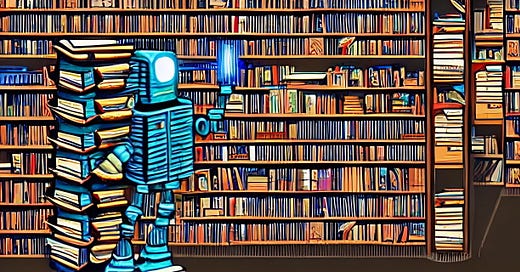


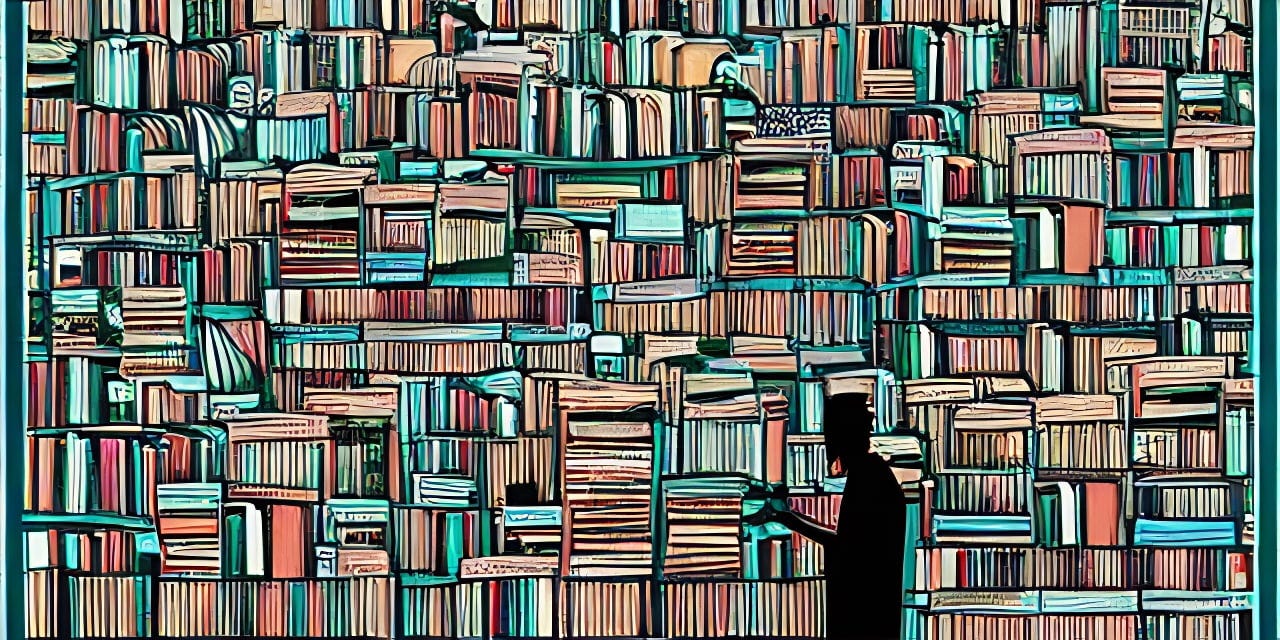
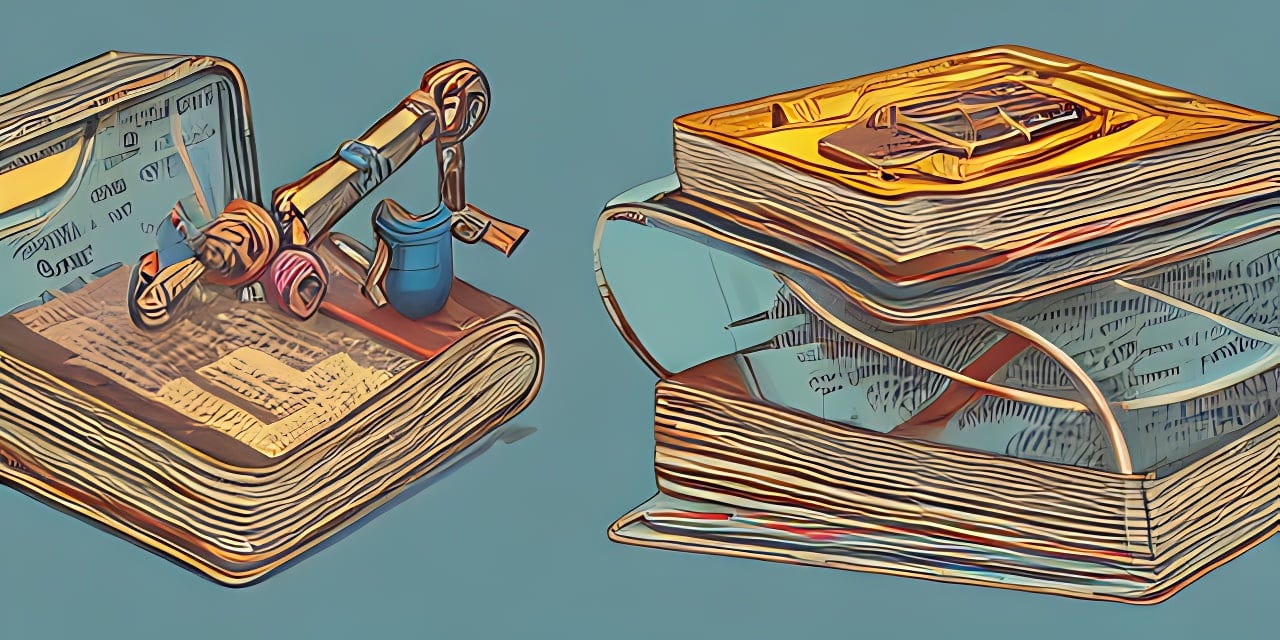
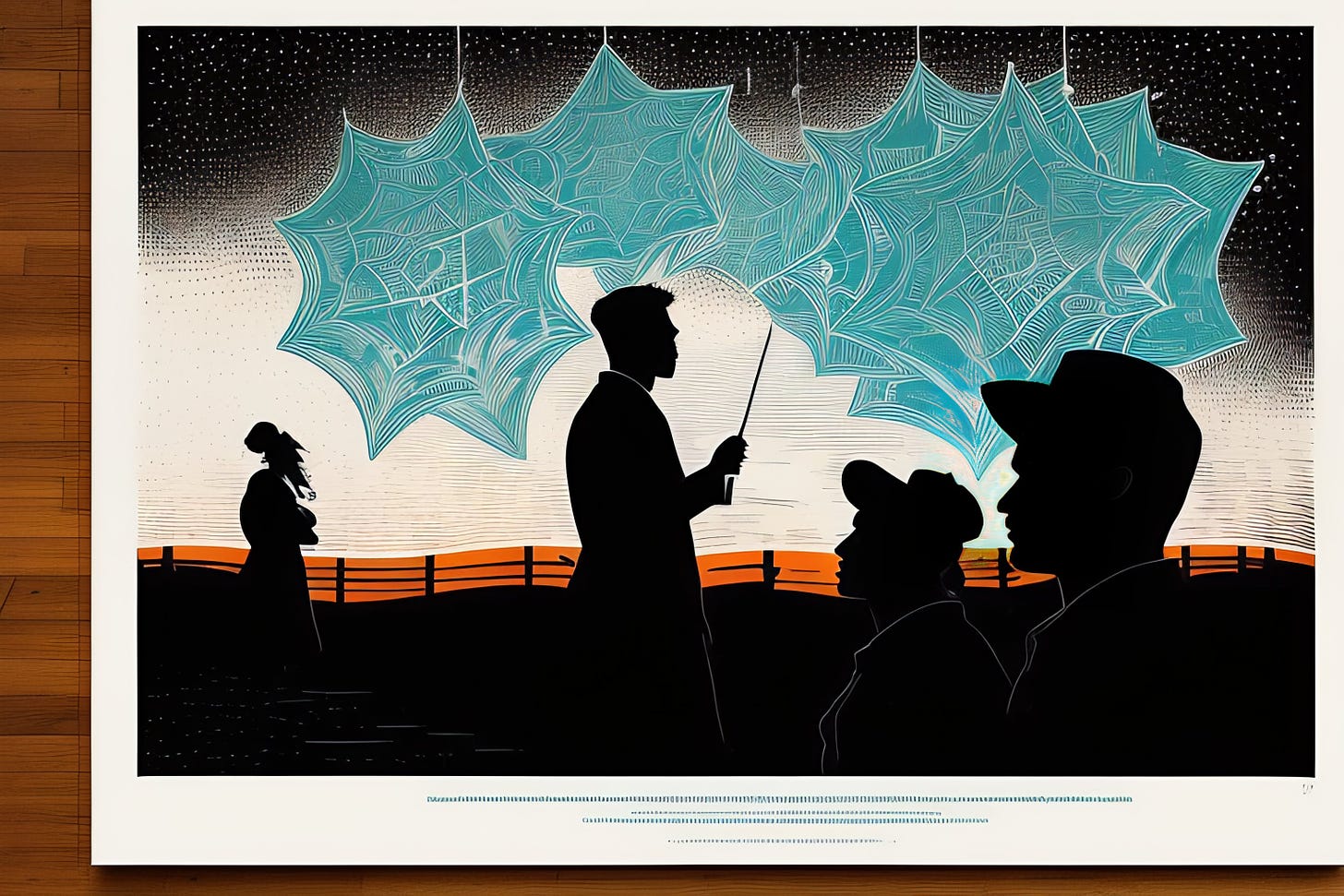
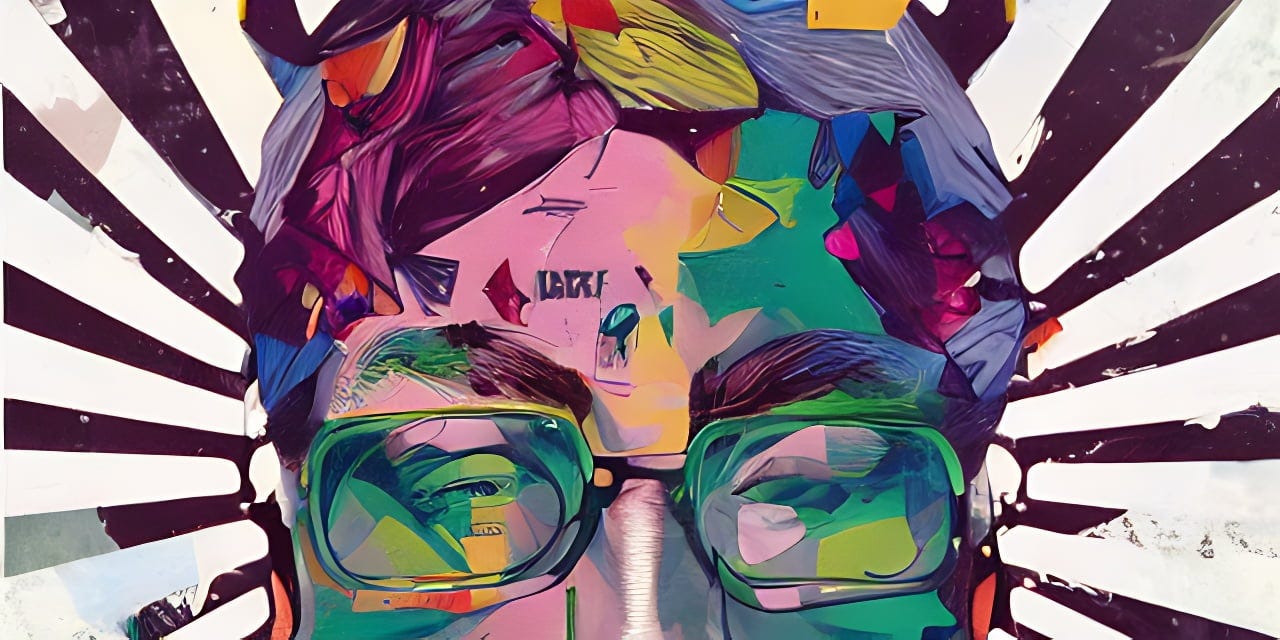
Really digging the Wallace-esque footnote formatting on these. I think it would be fun to see an edition of the newsletter that was like two paragraphs followed by 4k words of footnotes. I'd immediately pay another $40 a month to be able to connect ChatGPT to my Evernote and just conversationally chat with it.
Amazing post Michael! It really opened my perspective on how AI can supporting writing. Interestingly, I'm currently building an AI Note app with similar vision. You can converse with your notes, search for them using natural language, and it also automatically suggest relevant notes to what you are typing.
While it's not yet at the level discussed in your post, I'd love to hear your thoughts and feedback if possible, at https://saner.ai/